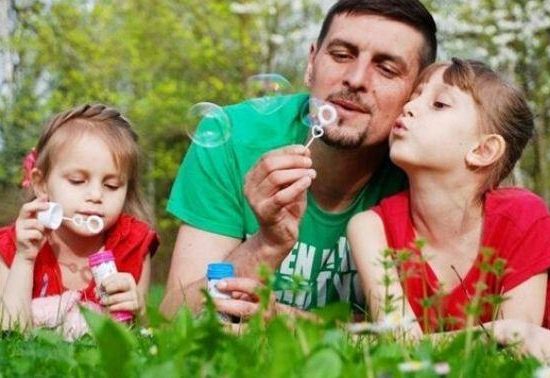
After a season of heightened multitasking during the COVID-19 pandemic, many parents are breathing sighs of relief as the school year and online learning come to an end for the summer. With the closure of schools and daycares over the past several months, balancing the demands of working from home, supporting online learning, and parenting has been emotionally and mentally taxing for many families, taking a toll on the mental health and well-being of both parents and children. While many families have experienced more time together at home, the increased physical proximity to one another has not necessarily translated into increased emotional connection and family bonding. As parents have attempted to navigate the competing demands for their time and attention, children in many families have experienced their parents as distracted and unavailable despite their close physical proximity.
This year, more than ever, families are in need of the rejuvenation, rest, and relaxation that summer brings. The transition into the summer season is a great reminder for us to slow down, put a pause on the multitasking, and focus on playful connection and truly being with our children. While many families are coping with the disappointment of summer travel plans and vacations being cancelled, moments of playful connection and enjoyment can be cultivated at home in our everyday experiences.


DELIGHTING IN CHILDREN BUILDS A POSITIVE SENSE OF SELF
“Being with” our children is an intimate experience where we are fully present with them and able to share in their emotional states (Hoffman et al, 2017). When they are in distress, “being with” them allows children to share the burden of their uncomfortable feelings, making them easier to bear. During moments of joy, “being with” our children increases the pleasurable emotions and helps them last longer. Delighting in our children is one way of “being with” them and promoting playful connection that leads to the sharing of joyful states.
The process of delighting in our children involves discovering all that is unique and wonderful about them and communicating this to them in playful and loving ways (Hoffman et al, 2017). An example of this is the way new parents take delight in counting their infant’s fingers and toes or noticing the shape of their nose and eyes. We delight in our children simply for who they are, not for what they can do or accomplish. The way our children experience us experiencing them builds their sense of self. It is through these intimate interactions with us where they feel truly seen, heard, and felt that they learn that they are loveable and worthwhile. Play is a powerful medium through which we can delight in our children.


TIPS FOR BEING WITH OUR CHILDREN
- Pay attention to children’s invitations – Our children seek us out many times throughout the day inviting us into their inner worlds as they explore and discover their skills, abilities, and interests. Sometimes these invitations come in the form of interruptions in the daily tasks we perform, such as preparing supper, and are not always welcomed and can often be dismissed. Whenever you can, stop what you are doing and accept your children’s invitations to connect with them or join in their play. Follow their lead and match their level of excitement, interest, and curiosity, even if it’s only for a few minutes.
- Prioritize 10-20 minutes of special time with children each day – Our children need us to be intentional about initiating connection with them. Choose a time when you can be relaxed, fully present, and provide quality attention. Take your children’s lead on what mutual activity might be most enjoyable for them – reading a story together, playing a quiet game, having a game of catch, or going for a walk together. Avoid giving directions or trying to teach children during these moments. This is not the time to take over their play. Delight in your children by providing positive feedback about the experience of being with them.
- Plan some fun adventures – As parents, we get less than 18 summers together with our children before their summers are filled with other priorities such as summer jobs or spending time with friends. The days as a parent can sometimes feel long, but the years are short. While COVID-19 has interfered with summer trips and vacations, many adventures can be found close to home. We can delight in simple activities with our children that foster experiences of joy and playful connection – blowing bubbles, water fights, watching a sunset, walks on the beach, or bike rides with picnic lunches.
- Enjoy these mindfulness moments - Being with and delighting in our children also has benefits for parents. Being fully present in the moment with our children helps us to let go of ruminations about the past and worries about the future. Taking in all the positive aspects of our children provides a boost to our mental health and well-being and can help strengthen our relationships with our children. Our joy is amplified and our spirits rejuvenated as we embrace and cherish these intimate and beautiful moments with our children – relishing simply in who they are and all that makes them unique and wonderful.


There are many things in our children’s lives that we cannot control. One thing we can control, however, is being available to fill their emotional cups with our presence. As we delight in our children and share experiences of joy and connection, we shape their views of themselves as lovable and worthwhile. This is a gift we can give our children that they will carry with them in years to come. This gift is also one that will help buffer against the adversity they will experience in life that we cannot control. As the weather warms up and we move into summer, delighting in playful connection with our children can provide the rest, relaxation, and rejuvenation that both parents and children need after a difficult season of multitasking and social isolation.
Kari Deschambault MSW, RSW
Mental Health Clinician


MORE COMMON THAN YOU THINK
- 1 in 7 children suffers from mental illness in Manitoba (Chartier et al., 2016).
- 70% of mental health problems have their onset in childhood or adolescence (Government of Canada, 2006).
There Is Hope The good news is that mental illness can be treated effectively. There are things that can be done to prevent mental illness and its impact and help improve the lives of children experiencing mental health concerns. Early intervention is best.
How KIDTHINK Can Help
To make a referral contact us
To subscribe to our newsletter click help
References
Chartier M, Brownell M, MacWilliam L, Valdivia J, Nie Y, et al. (2016). The mental health of Manitoba’s children. Winnipeg, MB. Manitoba Centre for Health Policy.
Government of Canada. (2006). The human face of mental health and mental illness in Canada. Minister of Public Works and Government Services Canada. Retrieved from https://cpa.ca/docs/File/Practice/human_face_e.pdf
Hoffman, K., Cooper, G., Powell, B. & Benton, C.M. (2017). Raising a Secure Child: How Circle of Security Parenting can help you nurture your child’s attachment, emotional resilience, and freedom to explore. New York: The Guildford Press.




